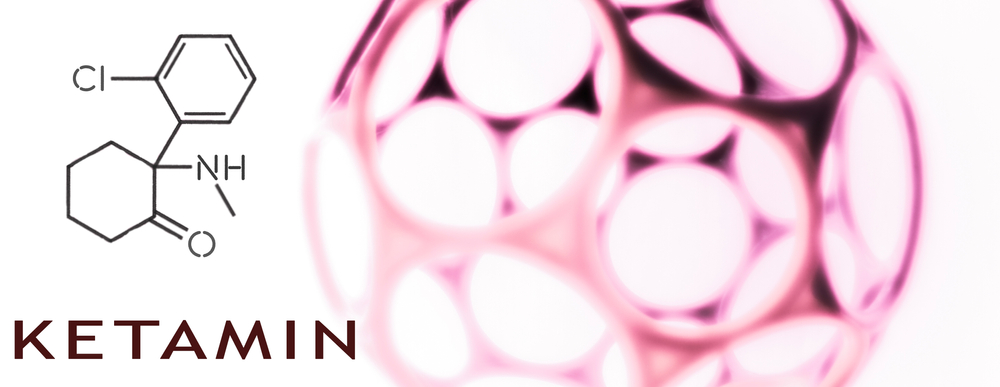What is Ketamine?
Ketamine is a dissociative anesthetic, typically used by medical providers and veterinarians to induce loss of consciousness before a medical procedure. More recently, it has been used in clinical trials as a treatment for Depression, PTSD, and other mental health conditions. It works by stimulating chemicals in the brain to produce auditory or visual distortions and detachment from reality.
Ketamine is also a drug of abuse, sometimes considered a “club drug” with substances like ecstasy. Street names for Ketamine include Special K, Horse Trank, Super K, or K. It is made in an injectable liquid but when used illegally it is often evaporated into a powder. Ketamine can be swallowed, snorted, or injected. When obtained illegally, it is sometimes smoked with tobacco or marijuana, however, taking Ketamine with other drugs can be fatal so it is not advised. Buying Ketamine illegally is especially dangerous as you are unable to know what it is cut with which could cause a potentially fatal overdose. Ketamine has also been known as the date rape drug because it is odorless and tasteless, making it easy for potential predators to slip it into someone’s drink without them knowing.

Ketamine Effects
Like with any other anesthetic, Ketamine affects people differently depending on height/weight, past Ketamine usage, amount of the drug consumed, and if there are other drugs present at the time of use. Effects of Ketamine can include:
- Decreased sensitivity to pain
- Euphoric feelings
- Auditory or visual hallucinations
- Feeling detached from your body, sometimes referred to as “falling into a k-hole”
- Increased heart rate and blood pressure
- Vomiting
- Confusion
- Increased feelings of panic or anxiety
- May cause some to act violently
Signs of Ketamine Abuse and Addiction
Because addiction is still stigmatized, often people in active addiction will go to great lengths to conceal their addiction, making it difficult for loved ones to know there is an issue. In general, signs of Ketamine abuse and addiction include:
- Developing a tolerance to the drug
- Continued use despite negative effects on their life
- Mood swings, irritability
- Disruptions to sleep
- Difficulty maintaining employment
- Poor sense of smell
- Flashbacks
- Difficulty with memory or concentration
- Putting oneself in dangerous situations while under the influence, such as driving
Ketamine Withdrawal Symptoms
Ketamine withdrawal symptoms are relatively mild compared to most drugs, but symptoms associated with discontinuing Ketamine include:
- Craving Ketamine
- Irregular heartbeat
- Loss of appetite
- Sweating and chills
- Restlessness and shaky feeling
- Nightmares
- Anxiety or depression
- Feeling tired
It’s possible to overdose on Ketamine and signs of an overdose include;
- Inability to move and rigid muscles
- Rapid heartbeat
- High blood pressure
- Convulsions
- Loss of consciousness
If you suspect someone has overdosed, stay with them and call 911.
Long Term Side Effects of Ketamine Abuse
Long term use of Ketamine can cause severe damage to many important organs in the body. Some of the most notable long term effects are:
- Liver or kidney damage
- Ketamine Bladder Syndrome
- Incontinence, ulceration in the bladder, inability to hold in urine
- High blood pressure
- Death
- Rigid muscles
- Flashbacks
- Issues with memory
- Psychotic symptoms
- Numbness or the inability to feel pain
Ketamine Addiction Treatment
Ketamine addiction treatment treats the “whole person.” Meaning treatment targets the mental, emotional, and physical aspects of addiction. Addiction is usually a result of a much larger issue, such as experiencing traumatic life events, untreated mental health conditions, or a result of family history of abuse. To have the best success in recovery, addressing all these in treatment is imperative. Treatment includes a variety of individual and group therapies, medical detox if necessary, leading edge trauma therapies, and support groups.
Depending on your treatment goals and the severity of addiction, there are different levels of addiction treatment that can be beneficial. For a more severe addiction, inpatient treatment may be the best place to start. In an inpatient setting, you will live at the treatment center while receiving treatment, usually between 30 to 90 days. There you will have access to around the clock care and a more intensive schedule of therapies. Another option would be an outpatient program, meaning you receive treatment during the day and return home at night. There are intensive outpatient programs with hours similar to a full time job, or less intense programs that allow you to have more freedom in your schedule while still getting the treatment you need.




